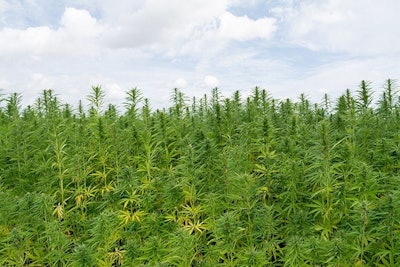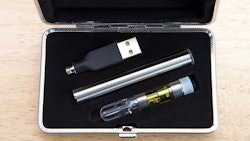
Michigan state lawmakers introduced a four-bill package that intends to legalize the sale of ingestible hemp-derived cannabidiol (CBD) products despite a lack of federal guidance.
The package, House Bills 5058-61, was introduced just before the Michigan Legislature adjourned for its summer recess. But all four bills have been referred to the House Committee on Regulatory Reform, where they will be vetted when House members return to session Aug. 17.
Specifically, H.B. 5061 aims to amend the “Industrial Hemp Research and Development Act” to permit the sale of hemp-derived CBD as a dietary supplement or food and beverage additive, provided state and federal labeling requirements are met.
Currently, the Michigan Department of Agricultural and Rural Development does not allow hemp-derived CBD to be sold legally in these forms, said Rep. Bryan Posthumus, a hops farmer who introduced H.B. 5061 with fellow Republican Reps. Pat Outman, Mike Mueller, Jack O’Malley and TC Clements.
“The 2018 federal legalization of hemp production created new economic opportunities for Michigan farmers,” Posthumus said in a press release. “Despite this legalization, it remains unlawful for hemp to be sold as a consumable product. This legislation provides an opportunity to expand development and protections for farmers and consumers alike as it makes consumable hemp products legal, but also expands protections for consumers and growers.”
The legislative effort intends to override the Michigan Department of Agriculture and Rural Development’s (MDARD) position that aligns with the U.S. Food and Drug Administration’s (FDA) lack of approval for CBD use in food or drink or as a dietary supplement.
While products derived from industrial hemp, including CBD oil, fall under several categories, the majority of all hemp farming nationwide was dedicated to CBD over the past few years. In 2019, about 87% of the 288,000 acres planted in the U.S. were expected to be used for CBD processing, as previously reported by Hemp Grower. Although some states began shifting more toward cultivating hemp for grain, fiber and cannabigerol (CBG) in 2020, CBD hemp was still the go-to crop among farmers nationwide.
Opening up demand for hemp extract will also significantly increase the supply of hemp-derived textiles and other hemp-derived products, Posthumus said.
“Hemp products, like the ones we are trying to legalize, are already sold across the state and nation, with little repercussion or regulation,” he said. “This injures farmers’ economic prospects and puts consumers at risk of purchasing something that does not meet any sort of regulation standard. With these products being so accessible, there needs to be a safe, legal and secure way for farmers and consumers to participate in the industry. We have a real chance here to expand opportunities and protections for farmers and consumers. It’s a win-win for the state of Michigan.”
The package includes three other bills that also have been referred to the House Committee on Regulatory Reform.
According to a news release by industry advocacy organization U.S. Hemp Roundtable (USHR):
H.B. 5058 provides that food is not adulterated solely because it contains or has added to it any quantity of industrial hemp.
H.B. 5059 removes the requirement that a hemp grower be licensed as a hemp or cannabis processor to sell finished hemp products.
H.B. 5060 amends the “Industrial Hemp Grower Act,” to:
- maintain the right of a person to bring a civil action for hemp sold in violation of state law, but it creates a civil action against a grower who sells hemp in violation of state law—not against any person who sells hemp products; and
- create a civil action that does not automatically provide for liability or unlimited damages, unlike the law from earlier this year.
Taken together, the legislative package legalizes the sale of ingestible hemp-derived CBD products while ensuring they comply with state food law and federal requirements and protects growers from liability for false claims made by resellers, according to Posthumus.
USHR endorsed the package.
“Collectively, these four bills would strengthen Michigan’s hemp laws and create a more favorable legal landscape for hemp and hemp products,” the USHR release stated. “They are each deserving of your complete support.”
























